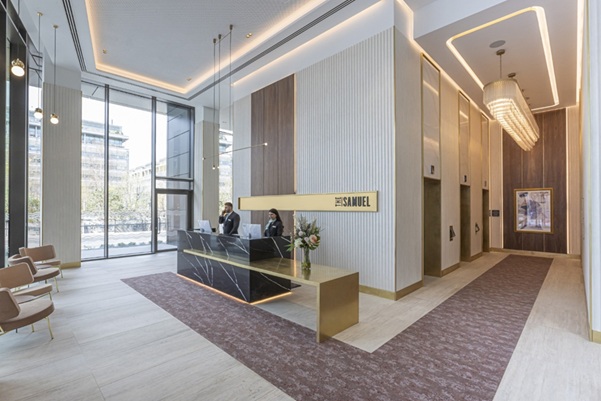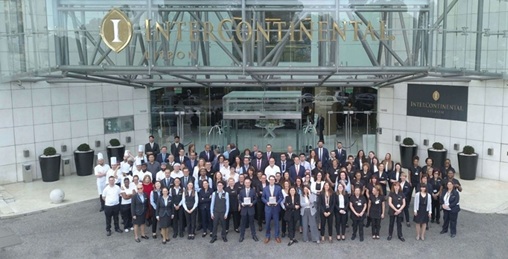The diversity advantage: Driving an innovative and creative workplace culture
There is much to discuss about diversity in the workplace, specially as demographics shifts, technology, and more accessible educational opportunities have provided organisations with an unprecedented access to a diverse and talented workforce. Reports suggest that 69% of executives consider diversity not only beneficial for employee productivity and motivation, but also a top priority for developing a positive workplace culture. Diversity refers to what makes individuals unique based on specific characteristics such as gender, age, religion, ethnicity, disability and sexual orientation, as well as differences in personalities, skills set, education, life experiences, and beliefs. Organisations that value diversity recognise, respect, and value these distinct qualities by creating a sense of belonging where employees can be themselves. They also challenge biases around marginalised groups and ensure equal opportunities, allowing all employees to thrive in the workplace. This is achieved by implementing both policies and practices that go beyond legal compliance and prioritise employee wellbeing. As more organisations commit to embracing a culture of diversity, it is worth reflecting on why they are doing so and how measuring its impact can be used to drive continuous improvement.
How diversity fuels innovation and creativity
The Universal Declaration on Cultural Diversity from UNESCO states that ‘diversity is embodied in the uniqueness and plurality of the identities of the groups and societies making up humankind.’ In this sense, different perspectives, experiences, and backgrounds are essential for a richer exchange of ideas and creativity, leading to new approaches and innovation. Additionally, acknowledging novel opinions allows employees and the workplaces they work in to prosper. These claims are backed up by research:
- Forbes discovered that diverse teams make better decisions up to 87% of the time
- Deloitte found that organisations that promote diversity can increase their employees’ sense of inclusion by up to 70%
- Trinet suggests that diversity thinking increases team innovation by 20%
- Glassdoor argues that 76% of employees say that diversity “is an important factor when evaluating companies and job offers.”
These figures reflect the numerous benefits that a culture of diversity offers to both employees and organisations. Companies with policies that celebrate diversity and value authenticity strengthen their recruitment practices. Fair and inclusive hiring attracts talented candidates from a wide range of backgrounds, ensuring organisations do not miss out on top talent. But inclusion does not stop at recruitment; it is equally important to nurture and develop existing employees. Inclusive leadership that encourages collaboration and values individual voices empowers employees to reach their full potential. Recognising diverse backgrounds, life experiences, and individuality enhances motivation, builds loyalty, and contributes to a more committed team. As a result, organisations benefit from lower turnover and improved retention. An additional organisational benefit of nurturing a culture of diversity is that it encourages employees to voice different opinions and perspectives, reinforcing an environment where creative thinking is supported. Moreover, job satisfaction tends to be higher among employees that feel represented and respected at work, leading to increased productivity and job performance. This is particularly important in the hospitality and tourism industries, where motivated and diverse teams are better equipped to understand and meet the needs of international customers with high-quality service. The InterContinental Lisbon is one example of an industry organisation seeing the benefits of its diversity practices.
The InterContinental Lisbon
Source: Photo with copyrights provided by the InterContinental Lisbon
The InterContinental Lisbon in Portugal created a number of policies under its ‘True Hospitality for Good’ initiative to embrace and promote the cultural diversity within its workforce. These policies are designed to make a positive difference in the world by supporting both the growth of the business and the development of the people within it. The hotel fosters a workplace culture that celebrates individual talents while contributing to social sustainability. To achieve this, the InterContinental Lisbon aims to provide a space where employees feel a sense of belonging, are supported in their growth, and are empowered to make a meaningful difference.
The hotel begins with a recruitment policy designed to enhance diversity, attract and retain top talent. To ensure fair treatment and equal opportunities for all employees, the InterContinental Lisbon follows the Global Protocol on Diversity & Inclusion. Since 2018, the hotel has been a signatory of the Portuguese Charter for Diversity, which provides guidance and support in its ongoing commitment to recognising, respecting, and valuing individual differences. Additionally, it has also developed an internal Diversity & Inclusion handbook and Diversity Calendar to celebrate key events throughout the year, fostering a sense of belonging across its workforce.
Prioritising diversity has strengthened employee productivity, collaboration, and the exchange of ideas at the InterContinental Lisbon. For example, by empowering staff to express their unique personalities, they are motivated to offer a more authentic guest experiences through an enhanced service delivery. Additionally, employees and management often work together to explore ways to improve operations. The hotel has received recognition for its inclusive practices, including the Diversity Seal and is ranked among the Great Places to Work in Portugal. An important lesson the InterContinental Lisbon has learned is the importance of addressing workplace challenges with empathy and respect. Research suggests that a practical way to support this is by regularly gathering data and feedback to drive continuous improvement.
How the culture of diversity evolves: using data and feedback for continuous improvement
Organisations with a culture of diversity understand the importance of taking a proactive approach to creating a positive environment. Research suggests that effectively embedding diversity policies requires recognising it as an ongoing, evolving process that demands continuous attention, especially as employee needs change over time. To support this, it is essential to gather data. A recommended method for collecting and measuring this data is through anonymous employee surveys and focus groups, which provide valuable feedback on diversity policies and practices. Requesting feedback not only builds trust but also fosters a sense of belonging by showing employees that their perspectives are valued. This process should always be rooted in respect and, when appropriate, open dialogue.
Once data has been gathered, it should be carefully analysed and interpreted to understand employee perceptions, experiences, challenges, and areas for improvement. Common barriers that may hinder a culture of diversity include insufficient training, resistance to change, unconscious bias, lack of leadership support, poor representation, communication barriers, and fear of retaliation for speaking up.
After identifying areas for improvement, organisations can use these insights to take meaningful action and promote progress. This is an opportunity to respond to concerns, create targeted strategies, and demonstrate a genuine commitment to embracing a culture of diversity. Showing employees that their voices are heard and respected reinforces their wellbeing as a core organisational priority. A great example is The Samuel Hotel, where management uses feedback from employees to continuously improve their culture of diversity.
The Samuel Hotel Dublin

Source: Photo with copyright provided by The Samuel Hotel
The Samuel Hotel opened its doors in 2022 as a property of the largest hotel chain in Ireland, the Dalata Group Hotel, to provide accommodation services for leisure and business guests. Rooted in the chain’s values of ‘people’ and ‘fairness,’ The Samuel has developed a culture of diversity through inclusive strategies that ensure all employees feel valued and welcomed, including equal opportunities for recruitment and promotions, ongoing training, and promoting gender balance in leadership roles. The Samuel uses various methods to identify areas for improvement. Firstly, the hotel tracks and reports data on nationality and gender distribution, helping to ensure a fair representation of diversity. For instance, they currently employ over 30 nationalities among its 100 employees. Knowing these metrics endorses cultural awareness initiatives such as ‘Nationality Days,’ where employees share insights about their countries. Likewise, women are empowered to advance within the company, acknowledging the significant under-representation of females in management in the hospitality industry. Management also conducts biannual surveys to gather staff feedback to proactively engage with their workforce to identify needs and challenges. This approach reflects their belief that listening to different perspectives contributes to a more balanced and dynamic team. The Samuel uses this data to create tailored strategies to enhance team efficiency, engagement, and motivation as well as to inform their diversity practices and policies.
As part of continuous improvement efforts, the hotel provides regular training sessions for all employees on topics such as overcoming unconscious biases, mental well-being and equality, diversity, and inclusion. These courses help reinforce a supportive culture of diversity and guide employees to make people-centred decisions. The Samuel also acknowledges that integrating employee feedback into organisational strategies requires time for thorough evaluation and they are prepared to adjust their approaches based on the insights gained during this process. The Samuel will continue to gather feedback with surveys and hold constructive exchanges to identify additional needs and create action plans to further embed a culture of diversity.
Conclusion
This blog has exemplified how embracing a culture of diversity is beneficial for employees and organisations alike. Organisations that welcome diverse candidates have an increased talent pool and enjoy a more positive culture. Employees with different backgrounds bring novel ideas and fresh perspectives, fostering innovation and creativity. When employees feel heard, valued, and respected, they are more likely to perform better and remain in the organisations in the long term. The InterContinental Lisbon shows that when hotels implement policies reflecting a sense of belonging and appreciation for individuality, service delivery is enhanced.
Research on organisational practices in hospitality businesses worldwide have highlighted the importance of noting that creating a culture of diversity is an iterative process that requires constant monitoring and evaluation. Organisations that gather feedback and data through employee surveys and open dialogue are better equipped to acknowledge challenges and areas for improvement. The Samuel Hotel has demonstrated this by listening to employee voices, identifying concerns, and developing strategies to overcome them, fostering a culture where everyone can thrive. Both the Intercontinental Lisbon and The Samuel Hotel showcase the importance of embracing a culture of diversity. These best practices are featured as part of a broader collection in PANTOUR’s Handbook on Best Practices for Tackling Inequalities and Promoting Diversity and Social Inclusion in Tourism and Hospitality.
Author: Fernanda Vergara is a Research Assistant in the School of Culinary Arts and Food Technology at Technological University Dublin. Her enthusiasm for learning spans multiple business disciplines, including market research, policy implementation, and the hospitality and tourism sectors. She has conducted research on market preferences for organic wine and has explored diversity, inclusion, and equality within the hospitality industry





No Comments